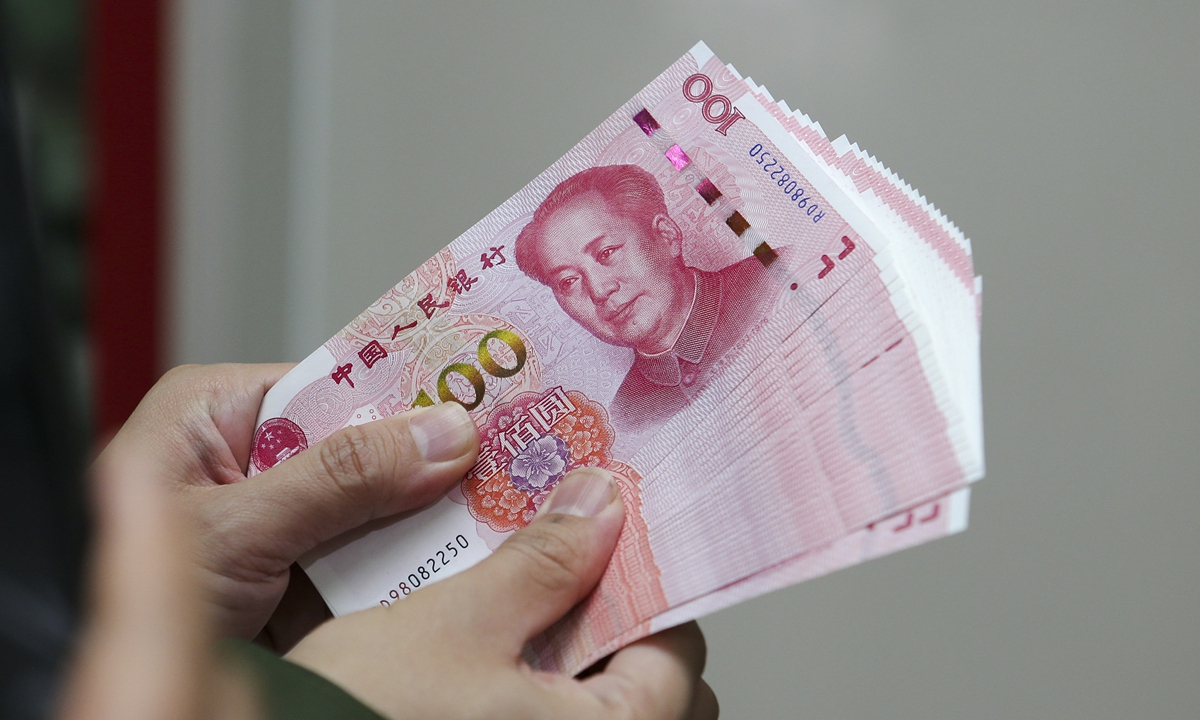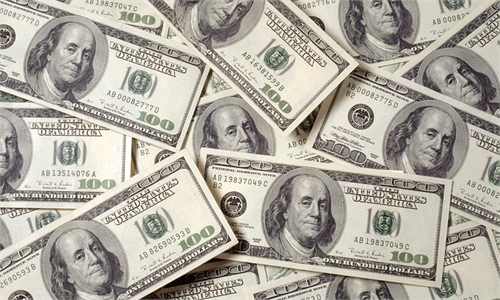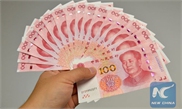China's FX reserves decline within controllable range, underpinned by strong economic fundamentals: expert

RMB Photo:VCG
China's foreign exchange (forex) reserves totaled $3.201 trillion as of the end of April, down by $44.8 billion, or 1.38 percent, from the end of March, according to data released on Tuesday by the State Administration of Foreign Exchange (SAFE).
The largely stable results, announced as some Asian countries posted the largest declines in their forex reserves in months, underscored the general stability of China's forex reserves, which are supported by the strong fundamentals of the Chinese economy and the resilience of its recovery.
In February and March, China's forex reserves continued to rise for two consecutive months, with the end-March figure totaling $3.2457 trillion.
The SAFE said that the economy has a solid foundation, multiple advantages, strong resilience and vast potential, adding that these traits are conducive to keeping the scale of forex reserves generally stable.
Amid changes in macroeconomic data of major economies and varying expectations on different countries' monetary policies, the US Dollar Index rallied in April and global financial asset prices fell.
The SAFE attributed the drop in the scale of the country's forex reserves to the combined effects of currency translation and changes in asset prices.
Experts said that the drop in the reserves in April was moderate, and its prospects remain upbeat due to China's solid economic fundamentals, effective policy regulation and the resilience of the yuan.
"April foreign exchange reserves data was in part dragged down by a strong dollar performance in the period, but the adjustment was within a controllable range, while the overall data stabilized at levels above $3.2 trillion," Zhou Maohua, a macroeconomist at China Everbright Bank, told the Global Times on Tuesday.
Despite the uncertain prospects of overseas assets and price fluctuations of global financial assets, the outlook for China's forex reserves remains steady with positive factors amassing, Zhou said. She predicted that the resilient economic recovery will continue to support a reserve level of more than $3 trillion in the coming months.
A resilient performance in foreign trade and the country's attractiveness to foreign capital seeking gains are factors offering support, said Zhou.
As multiple Asian currencies including the Japanese yen, the South Korean won and Indian rupee continue to depreciate against the US dollar, mainly due to the US Federal Reserve's policy, some countries have had to slash their dollar holdings to shore up their weakened currencies.
South Korea's foreign exchange reserves dropped in April by the biggest amount in 19 months as the country's central bank intervened to curb weakness in the won, Reuters reported on Tuesday.
However, underpinned by China's strong economic recovery, the yuan maintained a stable rate against the US dollar and even strengthened by a notch during the past week, alleviating the pressure for the People's Bank of China, the central bank, to intervene.
The central parity rate of the yuan weakened 8 pips to 7.1002 against the US dollar on Tuesday, according to the China Foreign Exchange Trade System. The yuan's exchange rate has been largely unchanged year-to-date.
The Chinese economy got off to a good start in 2024, with first-quarter GDP exceeding estimates to grow at 5.3 percent year-on-year.
The country also posted brisk tourism trips, spending data and box-office revenue during the just-ended five-day May Day holidays, reflecting growing momentum in the country's economic recovery.




